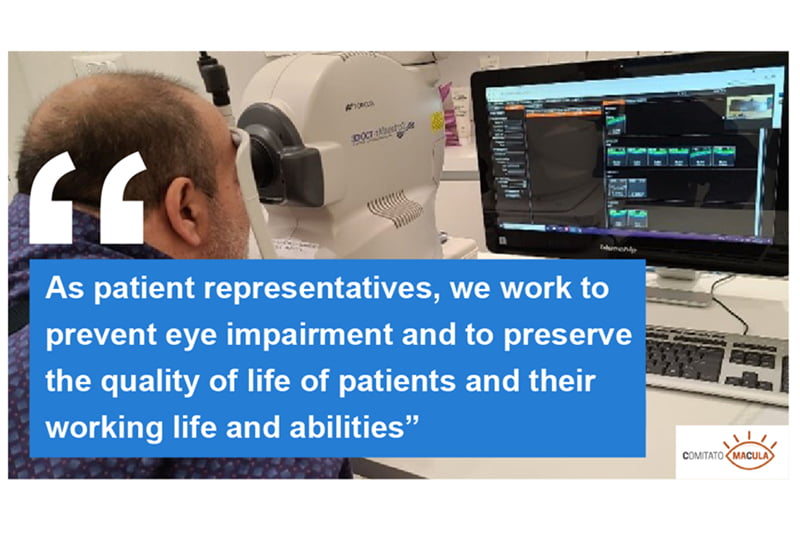Intervista a Massimo Ligustro per Roche Global Ophthalmology Patient Partnership
Massimo Ligustro, Presidente di Comitato Macula, racconta la sua storia di paziente con edema maculare diabetico e gli obiettivi dell’Associazione sulla prestigiosa newsletter di Roche Global Ophthalmology Patient Partnership.
My name is Massimo Ligustro, and I am the president of Comitato Macula in Italy.
I was diagnosed with diabetes mellitus and maculopathy in November 2013. The waiting lists at the hospitals were extremely long and because I did not have much time due to my work at a multinational biotech company, I had to receive treatment privately.
I noticed some improvement in my sight since then and continued to receive treatment every one to four months. This diagnosis had a big impact on my life and my career too.
In December 2014, I had to quit the job I had been doing for 26 years to take proper care of myself, take control over my illness and better understand it.
In July 2016 I was sent to the Eye Clinic of the University of Genoa located inside the San Martino hospital in the city where I currently reside. At that point, my sight was around five tenths, and the disease was not under control. Because I lost my job, I couldn’t afford to get better care, but at least in that clinic I found assistance and they prescribed six injections in a row with a new drug.
To date, I am still being treated by the same hospital where I receive injections every eight weeks and I am doing fine. I managed to resume working in a different sector with success.
In August 2019, some new regulations started forcing doctors to decide which drug to administer based on the cost. I found this new law very unfair and even if I was not directly concerned, I decided to set up Comitato Macula together with other patients and their families and loved ones in December 2019.
This year Comitato Macula promoted a pilot project, which I am particularly proud of, in a municipal pharmacy in Genoa called “Don’t lose your sight”. The project was aimed at giving the possibility of teleconsulting with OCT in the pharmacy to prevent blindness and diagnose maculopathies early. The OCT exam was carried out (remotely) by a specialist at the ophthalmology clinic at the university hospital San Martino.

Sei un paziente con maculopatia, un familiare o un caregiver e vuoi far sentire anche tu la tua voce? Vuoi vedere riconosciuti i tuoi diritti a ricevere una diagnosi in tempi certi e le cure migliori disponibili? Vuoi contribuire a promuovere la conoscenza e la ricerca in questo settore dell’oculistica? Unisciti al Comitato Macula, la prima Associazione senza fini di lucro costituita per dare voce ai pazienti con maculopatia.
Quali sono le paure e le speranze per il futuro dei pazienti affetti da maculopatia? Roberta ci confida le sue.
Convivere con una maculopatia comporta necessità specifiche e limitazioni quotidiane. Ma grazie a un buon rapporto medico-paziente tutto può diventare meno complicato. Parola a Marina.
Ascoltiamo cosa significa in concreto sottoporsi alle iniezioni intravitreali, e perché è importante farlo, dalla voce di Stefano, un paziente di 58 anni.




